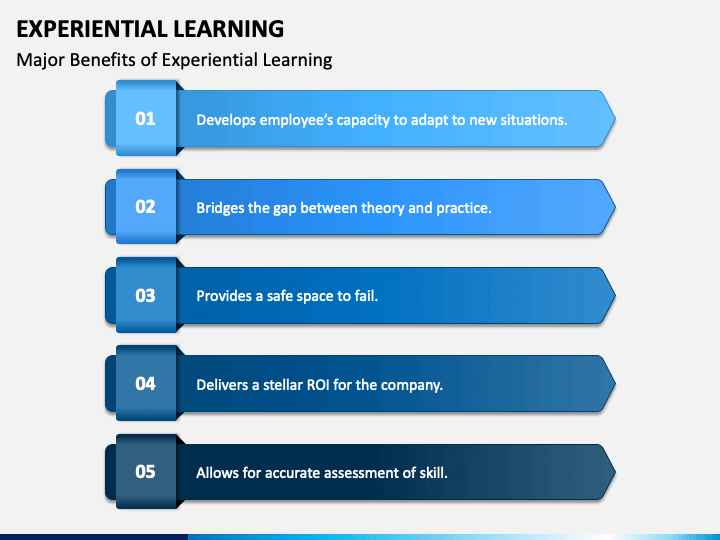
Experiential Learning PowerPoint Template PPT Slides
5. According to the Association for Experiential Education, experiential learning can be summed up in the phrase "challenge and experience followed by reflection and application leading to learning and growth." The concept of experiential learning was first explored by John Dewey, Kurt Hahn, Kurt Lewin and Jean Piaget, among others.

Experiential Learning. Learning / Aprendizaje / Aprenentatge Pinterest Experiential
The term research, according to Merriam-Webster's Dictionary (2012b) describes "studious inquiry or examination; especially: investigation or experimentation aimed at the discovery and interpretation of facts, revision of accepted theories or laws in the light of new facts, or practical application of such new or revised theories or laws."
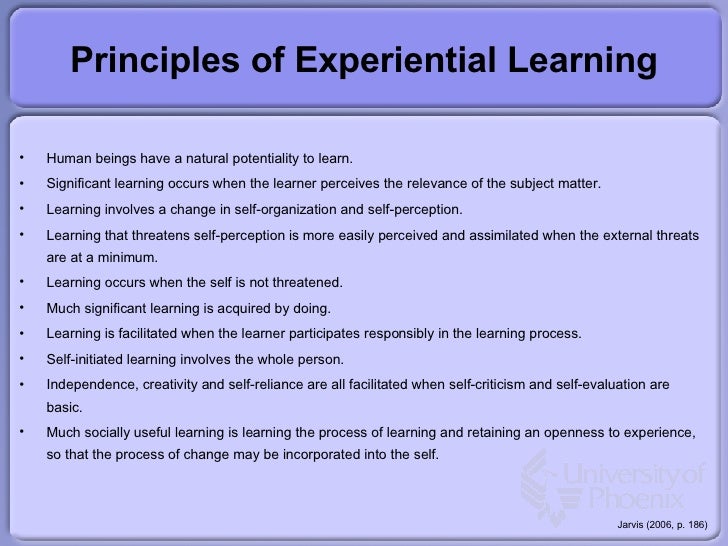
Experiential Learning Presentation
Experiential learning is learning by doing. In the field of L&D (Learning and Development) this is a powerful methodology to enable participants to identify their own development needs. Experiential Learning tasks are engaging and effective. Find out how to deliver first-rate soft skills development programmes.

PPT Experiential Learning Theory (Carl Rogers) PowerPoint Presentation ID654651
Experiential Learning is a process of acquiring skills and expertise by doing things and individuals learning from their experiences and mistakes. Recommended 1.3K What's hot Experiential Learning by Experiential learning by • Experiential Learning Presentation by • Experiential Learning Theory by 13.8K views • Experimental Learning by 1K views •

Opportunities for Experiential Learning in Mathematics GlobalGeek
Definition. Experiential learning is a process through which students develop knowledge, skills, and values from direct experiences outside a traditional academic setting. Experiential learning contains numerous elements, such as the following: Download Presentation skills simulation games analytical skills metacognition skills

Experiential Learning Theory by David Koib & Examples Leverage Edu
21 Item (s) Slide 1 of 10 Experiential Cycle For Innovative Learning And Development Playbook For Innovation Learning This slide showcases different levels of expertise which can help to identify current level of learner. Key levels are rule based thinking, situation based thinking and strategy based thinking.

Pros Cons Experiential Learning Ppt Powerpoint Presentation Gallery Slide Download Cpb
Keywords: Oral presentation, PowerPoint, experiential learning, peer teaching, undergraduate Oral presentations skills are a key aspect of achieving professional competency across a wide range of contexts. Communication skills are a valued component of many graduate profiles in higher education (van Ginkel et al., 2015) and a
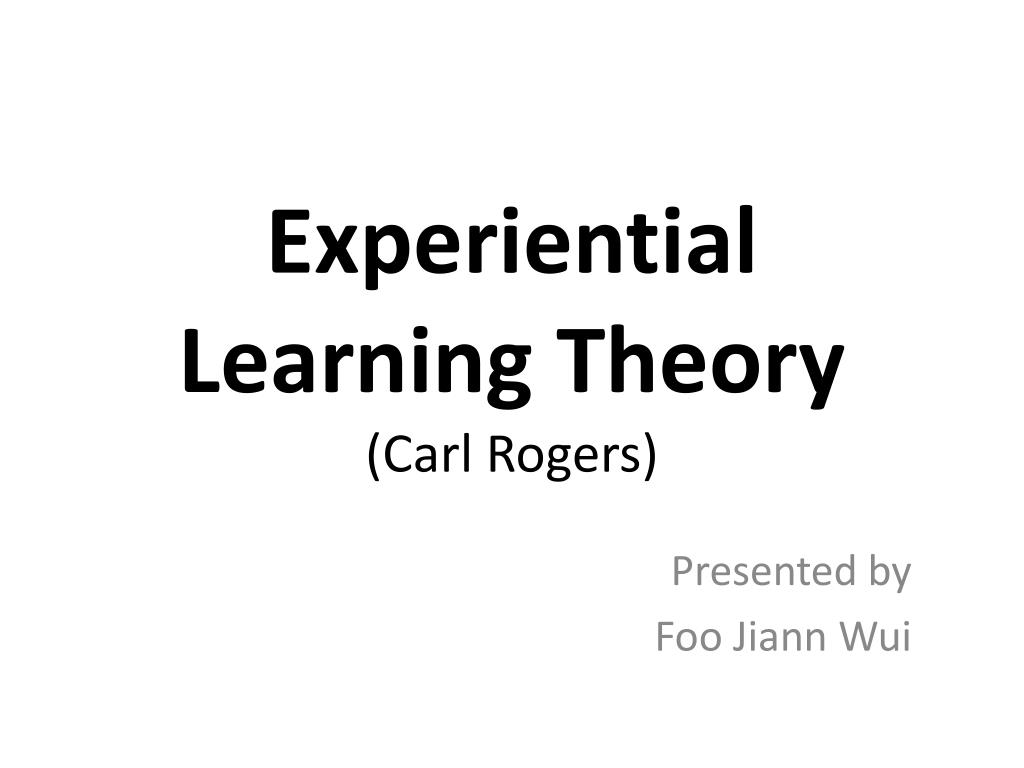
PPT Experiential Learning Theory (Carl Rogers) PowerPoint Presentation ID654651
Microsoft PowerPoint - Experiential Learning PowerPoint.ppt [Compatibility Mode] Experiential Learning 1 Obj ecti ves Recognize the five steps of the Experiential Learning Model. Experience the model. . Describe how Experiential Learning applies to positive youth development. What is Experiential Learning? Often referred to as "Learning by Doing"
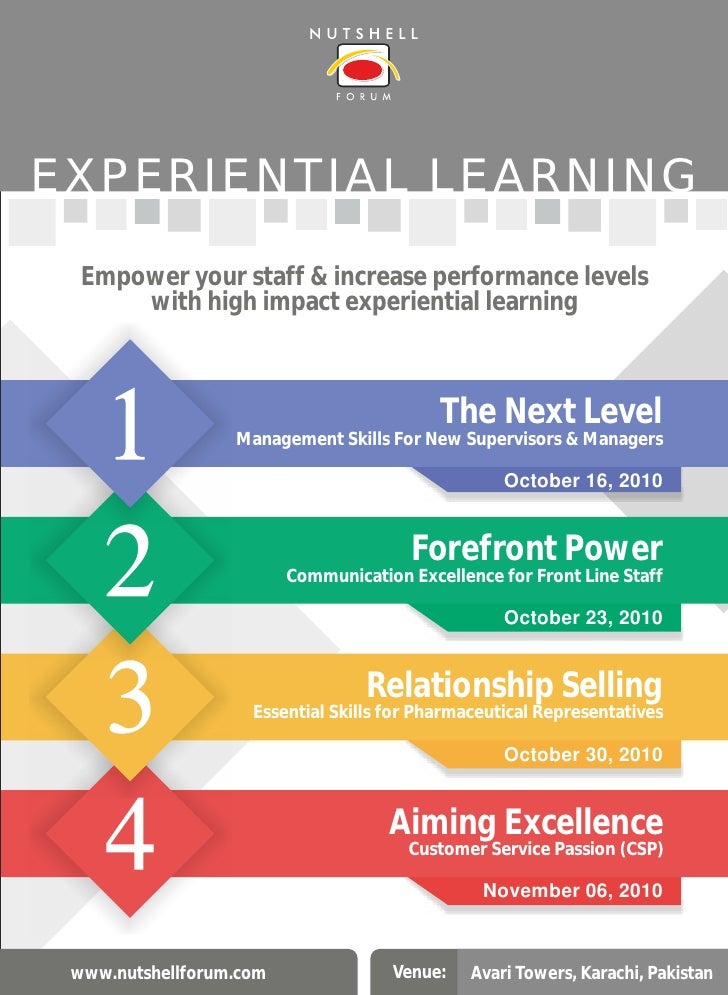
Experiential Learning
3.6.5 Strengths and weaknesses of experiential learning models. How one evaluates experiential learning designs depends partly on one's epistemological position. Constructivists strongly support experiential learning models, whereas those with a strong objectivist position are usually highly skeptical of the effectiveness of this approach.
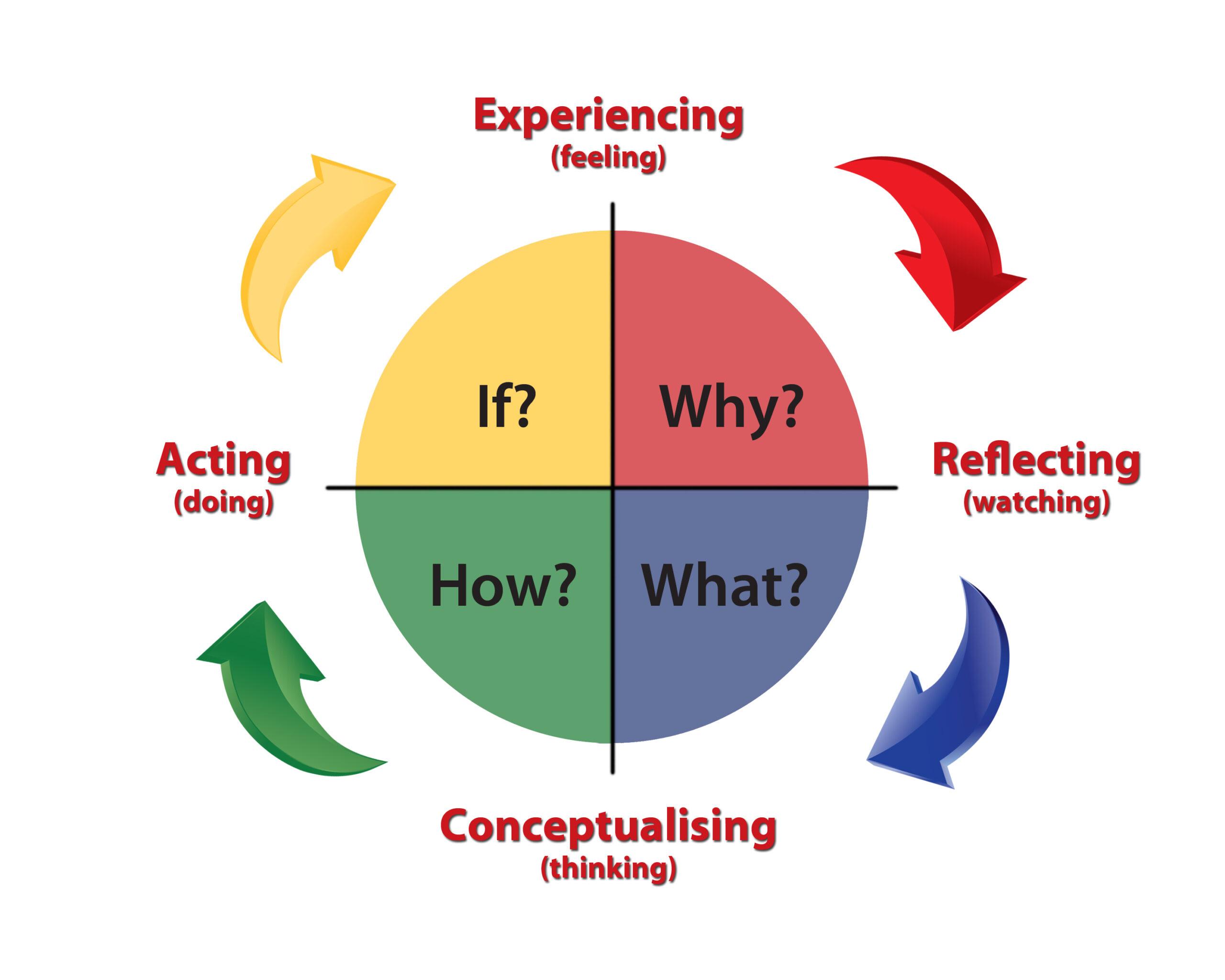
David Kolb Learning Style Inventory & Kolb Experiential Learning Theory 2023
Grab our Experiential Learning presentation template for MS PowerPoint and Google Slides to depict the dynamic educational approach that emphasizes hands-on, real-world experiences to foster knowledge and skill development. Educators can utilize this set to showcase the steps and the stages in the learning cycle proposed by David Kolb.
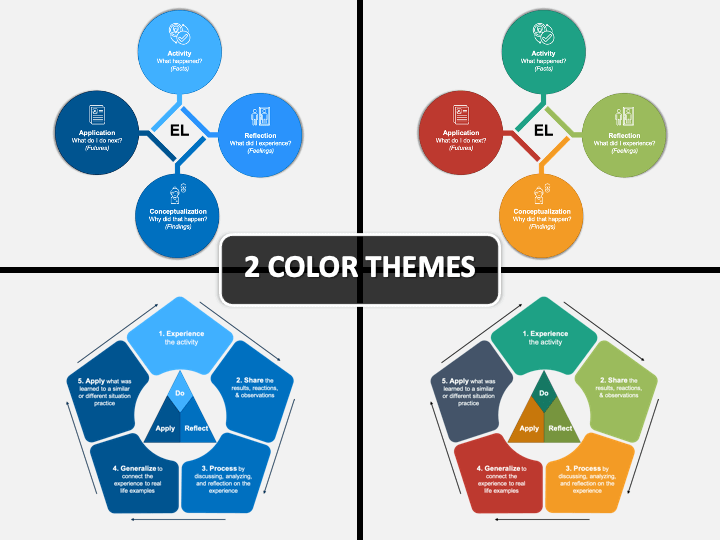
Experiential Learning PowerPoint Template PPT Slides
́ "a form of experiential education where learning occurs through a cycle of action and reflection as students. . . seek to achieve real objectives for the community and deeper understanding and skills for themselves. In the process, students link personal and social development with academic and cognitive development. . .

Experiential Learning Cycle01 Leverage Edu
51) Experiential learning describes a continuum of activities that, on one end, include classroom exercises that resemble "real life" and, on the other end, involve learning-through-doing beyond the classroom. For example, experiential learning within a classroom setting might include simulations, labs, or debates.
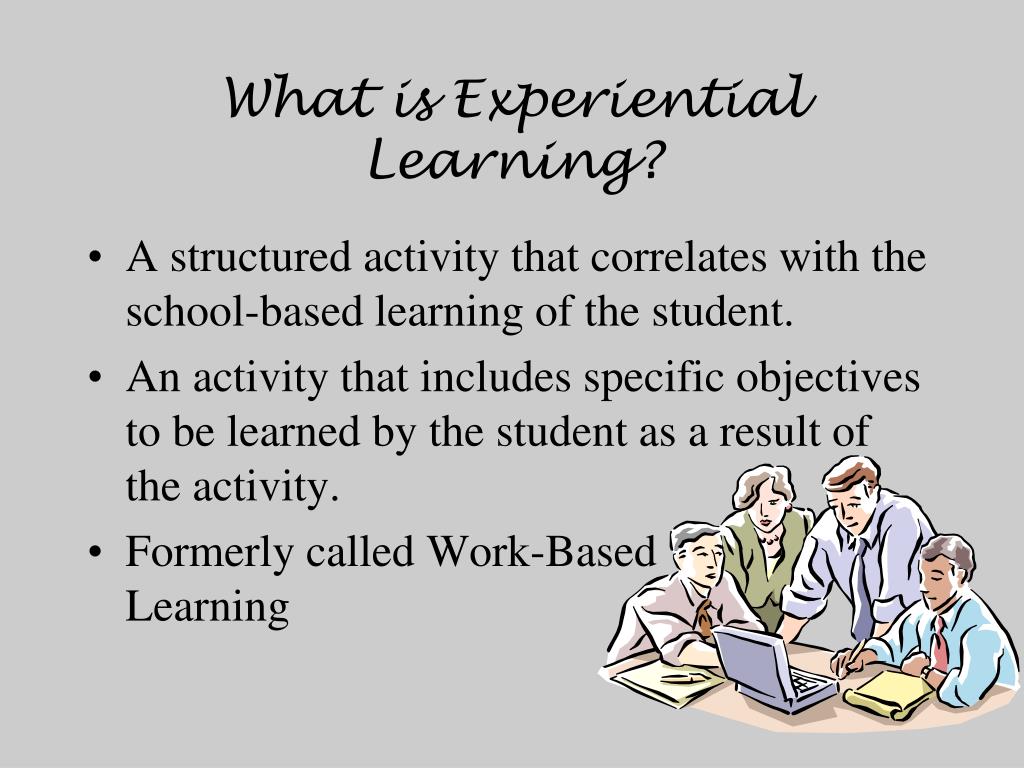
PPT Experiential Learning PowerPoint Presentation, free download ID6257785
5.1K views • 9 slides Experiential learning prepared by Dr. GOGGI GUPTA ,ASSISTANT PROFESSOR MOHALI goggigupta 2.8K views • 27 slides S B Consulting views Experiential Learning - Download as a PDF or view online for free
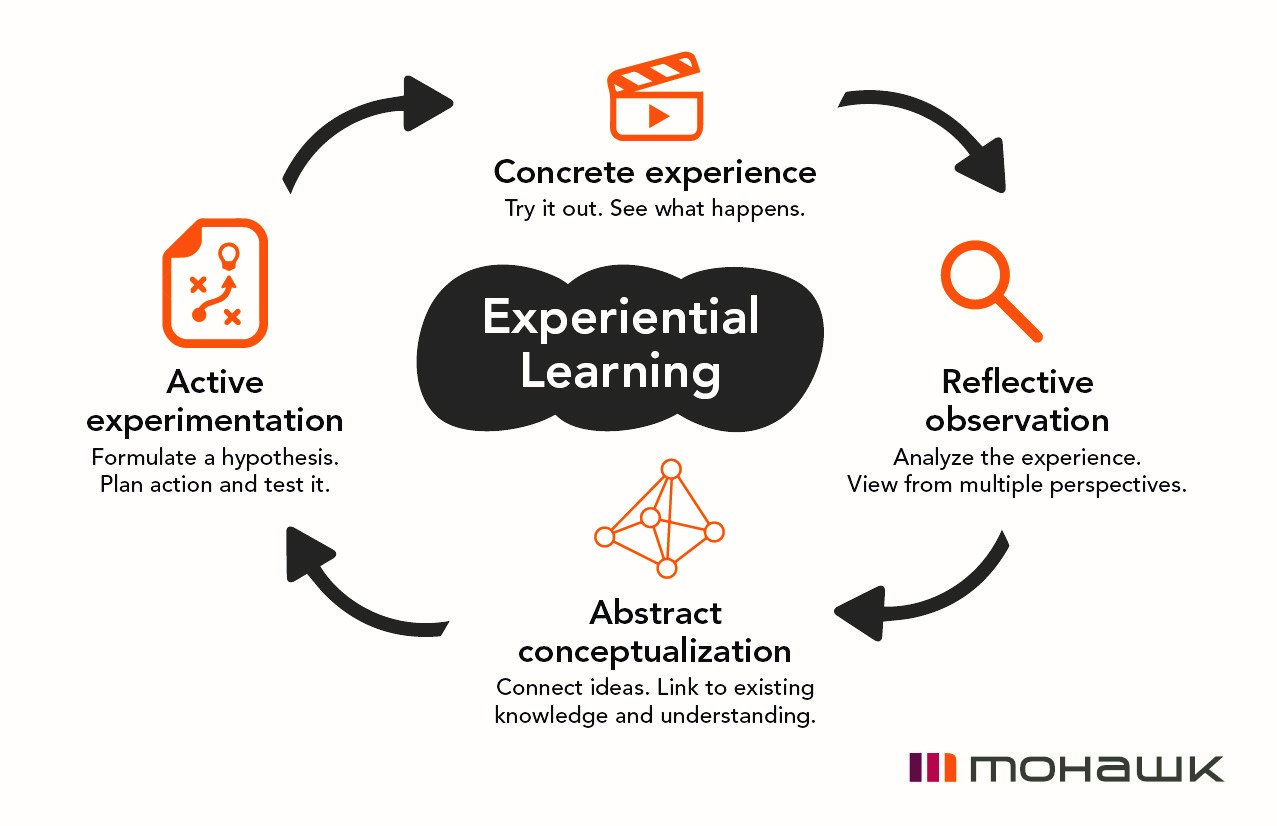
VR in education immersive experiences for better learning Giant Lazer
Experiential learning requires time and effort from teachers, but it greatly benefits students, especially those who are struggling. Read this slideshare for examples of experiential learning activities and more. Recommended What is inquiry based learning by Constructivist Approach to Teaching and Learning by What's hot (20) • 11.8K views

Experiential Learning Cycle Ppt Powerpoint Presentation Infographic Template Outline Cpb
This guide provides an introduction to experiential learning, summarizes several strategies for assessing experiential learning, and offers case studies with potential in-class applications. What is Experiential Learning? In its simplest form, experiential learning means learning from experience or learning by doing.

Experiential Learning PPT V2.2.3
According to Kolb, learning takes place through experience. There are four stages of learning, and "each stage provide [s] a step of experiential learning" (Vinales, 2015, p. 456). The four stages are: concrete experience, reflective observation, abstract conceptualization, and active experimentation. Kolb then identifies learning styles.